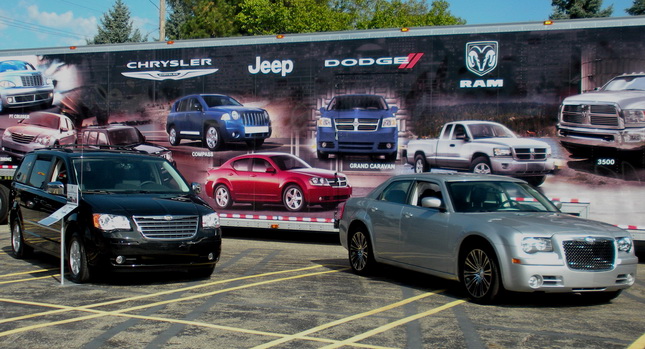Customer satisfaction is something all carmakers strive to achieve. The way each one chooses to improve and thus gain customer loyalty as well as a good reputation, differs among them.
In 2009, when the US automotive industry was in turmoil, the Chrysler Group initiated the Dealer Standards program.
It was Chrysler’s way to make dealers improve their facilities and their customer satisfaction index. Large dealerships could be awarded as much as US$200,000 per quarter if they met the Pentastar’s standards, and receive penalties for failing to do so.
In December of 2011, Jeep, Ram and Dodge finished in three of the bottom four places in J.D. Power and Associates Sales Satisfaction Index study while the Chrysler brand was ninth amongst 19 mass-market brands. Clearly, something had to be done.
On January 1, Chrysler suspended the program. More than half a year later, it announced today that it is putting in effect the Customer Experience Initiative, which eliminates incentives and penalties. From now on, says the company, dealers will live or die by the sales they make, not factory checks.
“If you perform at a higher level based on customer experience, your percentage of loyalty will grow, your percentage of service retention will grow”, Mark Engelsdorfer, Chrysler’s director of market representation, told Autonews. “With that, there will come a pretty substantial growth in your operating profit.”
The Customer Experience Initiative doesn’t do away with all former aspects of the brand’s relationship with its dealers. Customer satisfaction and complying to Chrysler’s standards, as well as gathering information through (heavily revised) mystery shopping as well as client contact by e-mail and phone surveys will continue to be implemented.
Peter Grady said that it’s the dealers’ responsibility to monitor their performance: “If I sell you a vehicle and you’re treated well, you’ll become an advocate for me, and you’ll tell other people that I’m a great dealer and this is great product,” he said. “The same thing happens on service.”
Grady adds that when the Dealers Standards program was implemented three years ago, only half of the group’s dealerships were profitable. This percentage has reached 90 percent, enabling them to invest in their business.
The new initiative was not forced on the dealers by the brand, as one would expect. It was instead compiled by a subcommittee of the Chrysler National Dealer Council. “The last program was all them”, said the council’s chairman and suburban Philadelphia dealer David Kelleher who noted, “This one was all built by the dealers.”
Committee member Sid DeBoer, executive chairman of Lithia Motors Inc. which owns 25 Chrysler Group stores in 10 states, added: “We have the same goal, the dealers and Chrysler. We want them raving about our products, and we want them raving about their experience in our dealership. There’s less penalties to it, and it’s getting us more focused on the right things.”
Story References: Autonews
PHOTO GALLERY




